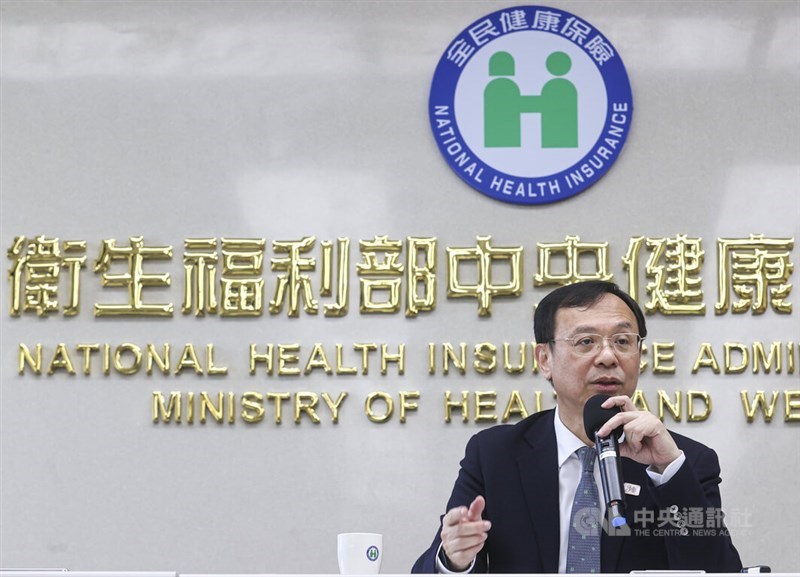
Taipei, Aug. 28 (CNA) Incoming Health Minister Shih Chung-liang (石崇良) said Thursday that easing emergency room (ER) overcrowding will be among his top priorities after he takes office next week, while indicating that the likelihood of a National Health Insurance (NHI) premium increase next year is "very low."
Shih, currently serving as National Health Insurance Administration (NHIA) director-general, will assume his new role next Monday, succeeding Chiu Tai-yuan (邱泰源) as part of a Cabinet reshuffle announced Wednesday.
● NHIA head Shih Chung-liang appointed health minister
"In terms of medical resilience, our top priority is, of course, to address the overcrowding in ERs," Shih said at a news conference in Taipei about his goals after taking over the Ministry of Health and Welfare (MOHW).
"If ERs remain chronically overcrowded, there can be no real resilience," he said, adding that when a crisis occurs, the medical sector's capacity is already stretched too thin, leaving far less "surge capacity" to respond effectively.
Citing the Legislature's latest investigation report, local Chinese-language media outlet mnews reported on Aug. 18 that in the first quarter of 2025, 77,000 patients waited more than 24 hours in ERs before being admitted to a ward, accounting for 3.75 percent of emergency admissions, up from about 3.32 percent in 2023.
The report added that if the overcrowding situation is not addressed, the annual number of patients waiting over 24 hours in ERs could surpass 300,000.
To improve bed turnover and admit ER patients more quickly, Shih said authorities will introduce the early supported discharge (ESD) model, under which patients who are stabilized can be moved to home or outpatient care sooner.
Shih also noted that around 80 percent of ER cases are minor and do not require hospitalization. "But when these patients with minor conditions flood ERs, it still adds to the workload of medical staff and affects the efficiency of care," he added.
An emergency physician by training, Shih said it is crucial to divert patients from overcrowded ERs, especially during holidays when most community clinics are closed.
To address the issue, he said he will continue to push for Urgent Care Centers (UCCs), which would operate on holidays to handle "urgent but not critical" conditions, such as wound suturing and common pediatric problems.
The NHIA in late July announced that pilot programs of UCCs could begin as early as October in Taiwan's six special municipalities, which will charge patients a lower co-payment than the NT$750 (US$24.56) required at ERs in medical centers -- the top tier of Taiwan's three-tier hospital classification system.
"In the future, we will also encourage some community clinics to open on holidays by offering incentives to help divert patients from ERs," Shih added.
Asked if NHI premiums would not be raised during his tenure as Minister of Health and Welfare, Shih said he could not give a definitive answer.
"If I were only in office for a year, I could say they would not be raised," he said. "But I do not know how long I will serve, so I cannot easily promise what will not be done during my term -- what I can say is what I will do while in office."
He said that given the current financial condition of the NHI, by the end of the year, it will accumulate a surplus exceeding one month's "reserve fund" -- a buffer required to equal at least one month of NHI expenditures to guarantee system stability.
"Based on the objective data, the chance of a premium increase next year is very low," he said.
- Society
Taiwan to hold disaster response drills, test quake alerts in September
08/28/2025 09:36 PM - Business
Ground broken at TSMC Arizona industrial reclaimed water plant
08/28/2025 09:18 PM - Society
ER overcrowding top priority: Incoming health minister
08/28/2025 08:31 PM - Business
Taiwan's economy remains stable for 3rd straight month in July
08/28/2025 08:23 PM - Society
Former DPP lawmaker indicted on corruption, embezzlement charges
08/28/2025 08:18 PM